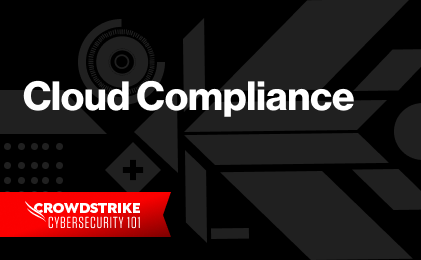The landscape of compliance is evolving rapidly as organizations shift their systems from on-premises data centers to cloud-based infrastructure. With new data protection regulations coming into force worldwide, it’s essential to understand the obligations and significance of cloud compliance. In this article, we’ll discuss the common regulations and standards, challenges of cloud compliance, and best practices to ensure data security and regulatory compliance in the cloud.
What Is Cloud Compliance?
Cloud compliance refers to complying with regulatory standards of cloud usage in accordance with local, national, and international laws. The key difference between traditional and cloud compliance lies in the approach to meeting these requirements. It’s crucial to understand the nuances of cloud compliance to ensure data security and privacy.
Common Cloud Regulations and Standards
General Data Protection Regulation (GDPR)
The GDPR is European legislation that unifies and strengthens data protection laws in member states of the EU. It includes requirements such as data residency, data minimization, storage limitation, right of access, and right of erasure. The GDPR has a global scope, applying to any organization that stores or processes personal data of European Economic Area (EEA) residents. Non-compliance can result in significant fines.
Federal Risk and Authorization Management Program (FedRAMP)
FedRAMP is a government regulation specifically covering data processed and stored in the cloud. It provides a set of controls based on the risk to data and is adapted for cloud-based deployments. While voluntary for private sector companies, adopting FedRAMP helps ensure a standard approach to privacy.
ISO 27000
ISO 27000 is a family of international standards that provide best practice recommendations for protecting information systems. It includes ISO 27001 (general set of controls), ISO 27017 (security controls for cloud computing), and ISO 27018 (privacy controls for managing personal data in the cloud). ISO compliance offers benefits such as enhanced trust, reduced risk to information assets, and compliance with data protection regulations.
Payment Card Industry Data Security Standard (PCI DSS)
PCI DSS is a security-oriented standard applicable to organizations that accept or process card payments. It specifies 12 requirements for protecting payment card transactions and cardholder details. While broad in nature, PCI DSS requirements are slightly more specific than those of data protection regulations. Implementing cloud-based solutions, such as a cloud firewall, is essential for meeting these requirements.
Challenges of Cloud Compliance
Moving to a cloud environment presents unique compliance challenges. Here are a few examples:
Certifications and Attestations
Both organizations and cloud vendors must demonstrate compliance with applicable standards and regulations. It’s important to ensure that your cloud platform has the necessary certifications and attestations. Monitoring changes in data protection laws and cloud providers’ compliance status is crucial.
Data Residency
Data protection laws often restrict hosting personal data within specific territories. Organizations must carefully select cloud regions that comply with these laws. Multi-cloud strategies may be necessary to cover all regulated data if subject to numerous regulations.
Cloud Complexity
The cloud environment is complex, with multiple moving parts, making visibility and control challenging. Understanding the risk to your data and formulating an informed strategy for data protection become more difficult in a complex cloud environment.
Different Approach to Security
Compliance requirements for security are generally broad, emphasizing the need for appropriate technical and organizational measures for data protection. Traditional security tools are not designed for the dynamic, distributed, and scalable nature of the cloud. Adopting security solutions specifically designed for cloud infrastructure is essential.
Shared Responsibility Model
When hosting workloads in the cloud, security and compliance responsibilities are shared between organizations and cloud providers. Each party has defined responsibilities, outlined in the shared responsibility model published by leading cloud service providers. Understanding these responsibilities ensures a clear understanding of compliance obligations.
Cloud Compliance Best Practices
To meet regulatory requirements and achieve compliance in the cloud, consider the following best practices:
- Encryption: Protect data at risk by encrypting it both at rest and in transit. Implement good key management practices to maintain data security.
- Privacy by default: Bake privacy into system design and processing activities, making compliance with data protection regulations easier.
- Principle of least privilege: Grant users access only to the necessary data and resources, reducing the risk of compromise and demonstrating compliance measures.
- Zero Trust: Enforce strict authentication, authorization, and monitoring for users, endpoints, and applications.
- Well-architected frameworks: Leverage modular frameworks provided by leading cloud vendors to build resilient, secure, and optimized workloads.
Above and Beyond Compliance
While compliance is essential, it is not synonymous with security. Compliance ensures baseline requirements are met, but it doesn’t guarantee protection against security risks. Organizations must prioritize security beyond compliance by addressing their specific needs and potential vulnerabilities. A strong focus on security is crucial to mitigate operational disruptions, financial losses, and damage to reputation.
Cloud compliance is a complex and evolving field. Understanding the regulations, challenges, and best practices enables organizations to navigate the cloud landscape securely and meet their compliance obligations effectively.
For more informative articles on technology and business trends, visit News Explorer Today.
